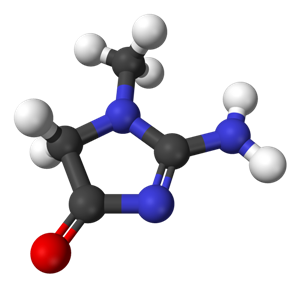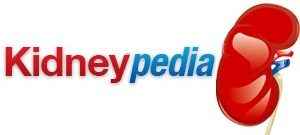
Creatinine is generated by muscular activity as a waste product. It’s carried away from the site of muscle activity by the blood and filtered from the blood by the kidneys.
When kidney function is impaired, creatinine builds up in the blood, resulting in elevated levels of serum creatinine that can be revealed by a blood test. At the same time, less creatinine is passing into the urine, which means urinalysis will reveal lowered levels of urinary creatinine. This is a useful test for impaired kidney function.
Normal Levels Of Creatinine
The normal range of creatinine in the blood can vary from lab to lab, depending on procedure and specific equipment. It can also vary depending on age, muscle mass, and physical activity, with higher levels of serum creatinine being normal for larger people, adults, and those routinely engaged in strenuous physical exercise. Overall and on the average, serum creatinine should be between 0.6 and 1.2 mg/dl in men,
and between 0.4 and 1.0 mg/dl in women.
Elevated Creatinine And BUN
BUN stands for blood urea nitrogen. BUN is another waste product generated by the breakdown of protein. Like creatinine, BUN is filtered from the blood by the kidneys, and a test for BUN is indicative of kidney function or dysfunction. The ratio of creatinine to BUN is of use diagnostically when both are elevated to indicate where in the urinary tract the problem is located.
Normal levels of BUN range from 6 to 20 mg/dl. Elevated BUN by itself can be a sign of congestive heart failure, gastrointestinal bleeding, and several other conditions as well as kidney disease. Below-
The BUN-
Creatine Phosphokinase
Creatine phosphokinase (also known as creatine kinase) is an enzyme that facilitates muscle activity. As a result, it also facilitates the production of creatinine. Although the names are similar and it’s involved with the same process, this enzyme should not be confused with creatinine. A blood test for creatine phosphokinase is used to indicate damage to muscles and especially myocardial infarction. It is commonly administered to those suffering from chest pains. Elevated creatine phosphokinase can also indicate acute liver failure, a dangerous but reversible condition different from chronic kidney disease although it also results in loss of renal function.
Creatinine Clearance
A test for creatinine clearance is somewhat more complex than a simple test for serum creatinine. It measures creatinine in the blood and urine repeatedly, as well as the amount of urine passed in 24 hours. The goal of the test is to determine how well creatinine is being cleared from the blood.
High creatinine clearance can indicate injury to the muscles, hypothyroidism, burns, or carbon monoxide poisoning. However, it can also indicate either strenuous physical exercise or pregnancy, so some evaluation of the test results based on current situation and lifestyle is required.
Low creatinine clearance can indicate serious damage to the kidneys, as this is a direct measurement of kidney function itself. It can also indicate heart failure, dehydration, or liver disease, so again further diagnostic procedures are called for and this single test should not be relied upon as a perfect indicator of kidney disease.
